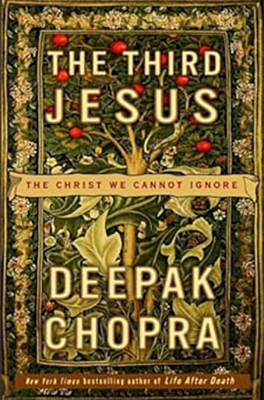The Third Jesus
“The Third Jesus: The Christ We Cannot Ignore” is a book written by Deepak Chopra, a prominent figure in the New Age movement and alternative medicine. In this book, Chopra presents his interpretation of Jesus Christ, distinct from the traditional portrayals found in mainstream Christianity. Here’s a summary of the main ideas:
Beyond Dogma: Chopra suggests that there is a deeper, spiritual essence of Jesus Christ beyond the dogmas and doctrines of institutionalized religion. He explores the idea that Jesus represents an archetype of spiritual awakening and enlightenment that transcends religious boundaries.
Unity Consciousness: Chopra emphasizes the concept of unity consciousness, suggesting that Jesus taught a message of love, compassion, and interconnectedness with all beings. He argues that Jesus’ teachings are universal and applicable to people of all faiths and backgrounds.
Inner Transformation: According to Chopra, the key message of Jesus is the invitation to undergo inner transformation and spiritual evolution. He explores various spiritual practices and principles, such as mindfulness, meditation, and forgiveness, as pathways to embodying the teachings of Jesus in everyday life.
Historical Context: While acknowledging the historical figure of Jesus, Chopra also delves into the mythological and symbolic dimensions of his story. He suggests that the miracles and parables attributed to Jesus should be understood metaphorically, pointing to deeper spiritual truths rather than literal events.
Personal Growth: “The Third Jesus” encourages readers to engage in a personal journey of self-discovery and spiritual growth, drawing inspiration from the teachings and example of Jesus. Chopra invites readers to embrace their innate divinity and awaken to the higher consciousness that Jesus embodies.
Overall, “The Third Jesus” presents a reinterpretation of Jesus Christ as a timeless and universal figure of spiritual wisdom and enlightenment. It offers a perspective that goes beyond traditional religious frameworks and invites readers to explore the deeper dimensions of their own spirituality.

